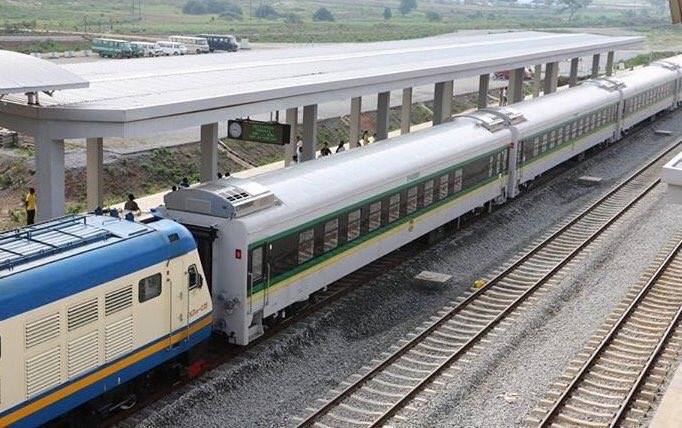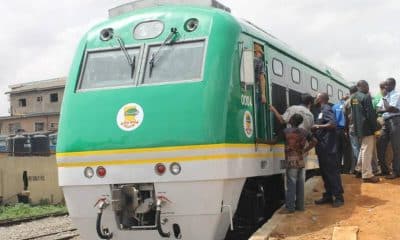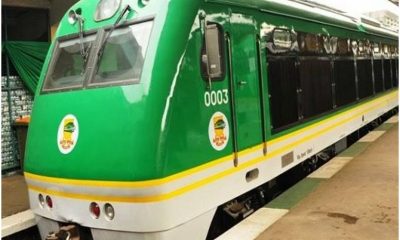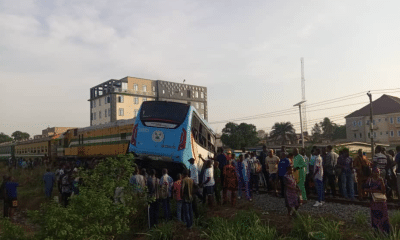Nigeria News
Shippers Council Decries Rail Tracks Vandalism

The Nigerian Shippers’ Council has voiced worries over the theft and vandalism of railway tracks that connect the country’s inland ports.
While examining the Funtua Inland Dry Port in Katsina State in advance of its opening on Tuesday, the executive secretary of the council, Pius Akutah, voiced the concern .
Naija News reports that Akutah lamented that the start of train cargo movement from and to the hinterland ports has been delayed by the persistent occurrences of national asset theft along the Lagos-Kaduna, Kaduna-Zaria, Zaria-Funtua, and Kano routes.
While large truck transportation of freight via the road is now allowed in the Funtua Inland Dry Port, the usage of the train system is thought to be essential for overall dry port management, reduced risk, and cost effectiveness.
The council’s secretary noted that the Federal Government is using energy to overcome the challenges and connect the railway system to the inland dry ports.
Akutah urged the Katsina State Government and communities along the railway line to assume ownership of the key national assets, arguing that the Federal Government should not be solely responsible for protecting the entire infrastructure within the states.
The NSC chief praised Funtua Inland Dry Port concessionaires’ efforts thus far on the project but urged management to step up efforts to finish the facility by the deadline for the inauguration.
Akutah said, “We are here on the instruction of the minister to inspect the level of work done so far ahead of Mr President’s visit for the commissioning of the facility.
“The role of the ministry is to ensure the nation slides away from the oil-dependent economy and diversify in the area of the non-oil sector, especially in the blue sea sector.
“The development of Inland Dry Ports across the country is an initiative of the Nigerian Shippers’ Council to bring import and export shipping into the hinterland thereby decongesting the seaport and advancing economic activities in the dry port.
“From what we have seen, the management of the dry port has done well because we know the project is capital intensive but we have also observed areas that needed to be improved on. For instance, you need to improve in the general clean up, furnishing of the offices, planting of flowers and recruitment of staff.”












